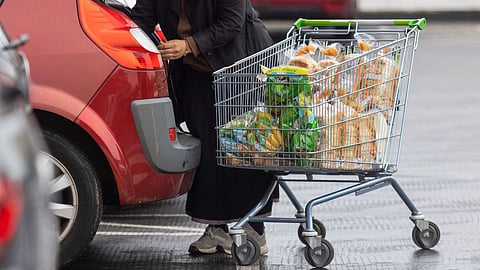A shopper loads her car with food shopping at an Asda supermarket in Folkestone, UK, on Monday, Nov. 14, 2022. Photographer: Chris Ratcliffe/Bloomberg
Locked
UK inflation hits 41-year high on soaring energy prices
Energy bills drove UK inflation to a stronger-than-forecast 41-year high in October, adding to pressure on the government and Bank of England to act.

